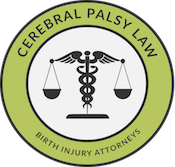National Children’s Mental Health Day
Yesterday, May 7th, the U.S. Substance Abuse and Mental Health Services Administration (SAMHSA) hosted National Children’s Mental Health Awareness Day. As part of the larger Caring for Every Child’s Mental Health Campaign, National Children’s Mental Health Day works to raise awareness about the importance of children’s mental health from birth through adolescence. This year, SAMHSA partnered with the American Psychiatric Association, American Psychiatric Foundation, the Clinton Health Matters Initiative, Clinton Foundation, and The Jed Foundation.
Marking the 10th anniversary of National Children’s Mental Health Awareness Day, yesterday’s national event focused on building strategies and ideas for integrating children’s behavioral health care needs with education, therapy, primary health care, and child welfare. Families, educators, social service providers, mental health experts, and primary care professionals all gathered at the Lansburgh Theatre in Washington D.C. to participate in the national awareness event. Thousands of others participated in local events are awareness initiatives throughout the country, some of which included the following:
- The American Psychological Association and the Centers for Disease Control launched a community awareness initiative on behavioral therapy for children’s with ADD/ADHD.
- The National #HeroesofHope social media initiative, which takes place through April and May, utilizes social media platforms to celebrate mental health advocates and other #HeroesofHope within various communities.
- A SAMHSA-HRSA webinar titled “Consultation for Kids: Models of Psychiatric Consultation in Pediatric Primary Care” took place on May 4th.
- May 7th marked the “Talk, Text, Act” mental health awareness event specifically for high school students.
For more information on events, resources, and Awareness Day Event ideas, visit the SAMHSA page for National Children’s Mental Health Month here.
Children’s Mental Health, Behavioral Health, and Birth Injuries
Behavioral Health Problems, Mental Health Problems, and Developmental Disabilities Caused by Cerebral Palsy and Hypoxic Ischemic Encephalopathy (HIE)
A number of developmental disabilities, learning disabilities, and mental health issues are the result of brain injuries inflicted around the time a baby is born. Because these injuries are often severe, permanent, and life-changing, it is upsetting to consider that many of them are the result of medical malpractice. Some birth injuries known to cause mental health issues and behavioral problems include the following:
- Hypoxic ischemic encephalopathy (HIE, birth asphyxia): HIE occurs when the baby suffers oxygen deprivation around the time of birth. HIE can result from nuchal cords, C-section mistakes, maternal health problems, and more.
Periventricular leukomalacia (PVL): PVL is a form of neonatal brain injury that commonly causes cerebral palsy (CP) and other neurological and developmental issues. PVL occurs when a shortage of oxygen and blood flow to the brain weakens and kills the brain’s white matter. These empty spaces in the brain fill with fluid, often causing spasticity, motor control issues, and intellectual impairments.
- Brain bleeds (intracranial hemorrhages)
- Fetal and infant infections (such as sepsis and meningitis)
- Neonatal hypoglycemia
- Fetal stroke
- Jaundice and kernicterus
Early Intervention for Mental and Behavioral Health Issues
Early intervention is key to supporting the well-being of a child with behavioral health issues, special mental health care needs, learning disabilities, and/or developmental delays. This year’s National Children’s Mental Health Day stressed the importance of quality instruction and care at every level of a child’s development—mental health care should pervade school, family, primary health care, and social interaction. Because emotional and behavioral problems so often accompany cerebral palsy, developmental disabilities, learning disabilities, and speech delays, it is crucial for parents and caregivers to appropriately begin psychological therapy, psychotherapy, behavioral therapy, cognitive therapy, and/or counseling programs for their children. Early diagnosis, treatment and intervention may help prevent further mental health issues and behavioral problems.
Michigan Birth Injury Lawyers Representing Victims of Medical Malpractice
Behavioral and mental health issues require consistent and quality attention—in order to secure the funds necessary for your loved one to access therapy, treatment, special education, and other supportive resources, we encourage you to contact our team of birth injury attorneys. If your loved one has mental or behavioral health problems, a developmental disability, language delay, learning disability, developmental disability, or other birth injury, the Michigan birth injury lawyers at Michigan Cerebral Palsy Attorneys can help. Our lawyers have secured compensation for numerous Michigan families with birth injury diagnoses and are committed to advocating for the families affected by medical malpractice. You may call our offices toll-free at (888) 592-1857, fill out this online contact form, or press the following button.
